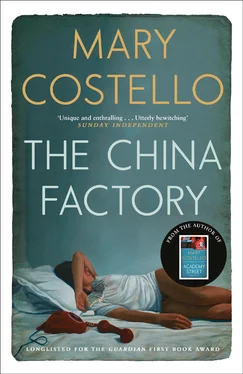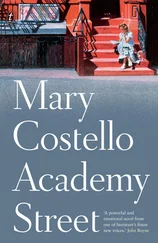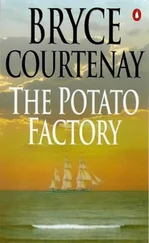In the dusk the corners of the room had disappeared. I stared at the unmade bed. I thought of an earthquake, a lateral shifting of the plates at her core. I pictured her waking in the mornings in that room, staring at the ceiling, then opening the window to a blue sky after night rain. And being caught for an instant, being taken down again by a memory, a dream, an aftershock. Don’t tell me she didn’t remember, don’t tell me she didn’t dream. And why did she not howl?
She was in her coffin a mile away. I thought of the tiny drop of time, the second — the fraction of a second — when the spark of an idea is ignited in a criminal mind. The second that explodes into being and begets an act that changes everything. That changed her, and flattened her out, and spread her so thinly that the space between parts of her, the space between her head and her heart, between all her nerve endings, grew so vast that she became almost entirely empty and in no time at all, in a morning, she disappeared.
And where was I that morning? Taking tea and toast with a novel propped, measuring out with exactitude a spoonful of sugar? Watching fog crawl over my back wall and tracking a thought with an intensity of being, as the blade pressed and pierced and punctured?
Suddenly she was standing at my aunt’s door again, at my mercy. Would a nod have saved her, altered her fate? Or does fate defy alteration and play out as originally intended, a little later perhaps, a little differently? Would another calamity have lain in wait for her? For us? A tree crushing our car on a winter’s night, crushing the two of us and our children? I think of these things now. I see possibilities everywhere — I see the thin veil that separates us from disaster. I see it shimmering above bodies of water, and loose slates; I see it in lightning flashes and speeding motorbikes; even in the rafters of my own attic, I see it lifting. And what good is Homer now? And where have all the gods gone — will Zeus climb down and help me? And, when the time comes, who will pay Charon?
Now I sit in the static of each day. I sit and wait for winter or for some hint of what to do next. I do not think of Suzanne as dead. I think of her in a dark room trying to recompose herself, rummaging for some remnant of memory, reaching out for an organ — an eye, a heart — and trying to fit it inside her. I dreamt of her the other night. I was walking along the road beyond by the lake. It was dusk and she was coming towards me again, her hair wild. As she drew near she looked at me and opened her mouth and began speaking in tongues.
‘I tried to give up God once,’ she said.
It was morning and they were driving along the coast road at the edge of the Burren. On their left the Atlantic lay very still and beautiful and blue, and for a moment she found it almost impossible to think of it as merely sea.
Her husband looked straight ahead. ‘You tried to give up God?’
‘Yes, years ago. Before I met you.’
‘And?’ he said, turning briefly to look at her, ‘How did that go?’
She looked out the window. He had a way of making her smile. ‘Not very well, actually. He punished me — He took away my sleep.’
For as long as she could remember, she had pondered God. It wasn’t so much fear of Him as gratitude for the particular life given, a good life, and a sense that at any moment, in her next breath, it might all end.
They were silent then and she was grateful. She had thought that a week away from the city would reveal some truths, some answers, and fix her thoughts more firmly. Outside the car the sun washed everything in its pale light, giving the stone walls, the lunar rocks, even the morning itself, a feeling of fragility.
Something came adrift in her that day. They drove to Spanish Point and sat on the rocks by the water. Adam took her hand and ran his fingers over hers. That evening they sat in the hotel lounge watching the other guests come and go — middle-aged Americans, young couples with children, businessmen down from the city for the golf at Lahinch. Outside, the light was fading. She got up and went to the window. Soon the moon would rise. There were rose bushes and fuchsias in the borders. There was no tree for miles around. Sometimes on their drives they came upon a lone bush on the roadside and she was stirred by its stark beauty, its forlornness.
Beyond the hotel garden the sea turned grey. She heard its murmur as the night began to fall. The nights here made her unspeakably lonely.
Adam got them drinks. There were lamps lighting in corners.
‘I was thinking we might go back tomorrow,’ she said.
He looked at her. ‘Aren’t you having a nice time? I thought we were having a nice time.’
‘We are. It’s lovely. It’s just that, well… there’s rain coming and we’d be going home on Saturday anyway. I just thought…’ She knew the sky would soon turn purple and send down rain while they slept. In the morning she would gaze out of the hotel room onto grey rocks and she could not bear to think of the emptiness that would follow.
‘Okay, if that’s what you want.’ He looked at her. ‘Aren’t you happy?’
He would always say the right words, do the right thing. He would put himself in harm’s way for her. She should be happy. She should be happy . How then could she explain why she didn’t feel enough? Is there a measure for enough? And when the enough plateaus out, as it does in a long marriage, is there a different kind of measure? Is there an index for love? She looked over at him, at his dark eyes and greying temples. And is there, she wondered, any explanation why on this warm night in this beautiful corner of the earth, with the vast ocean beyond the window and the moonlight overhead — is there any explanation why my head is filled with thoughts of another man?
They drove east to the city in near silence the next day. She had thought that faith, belief, would save her from this desolation, from the death of hope. That faith would protect against temptation, prevent this slide in life, make acceptable those mundane days when no more adventure, no new love, was possible again. Because love had, by now, been decided, accepted, finalised.
She had never met this other man, or heard his voice, and she had tried not to love him. On a wet evening in February she had attended an author’s reading in the city. Afterwards, she had walked out into the lighted streets with the image of the soft-spoken writer and his novel with its strange aloof character swirling around in her head. Two weeks later she received an e-mail.
Hi there. Did you, by any chance, attend a reading in a Dublin library one evening last month? Did you leave your copy of Julius Winsome behind? I picked it up, and failing to find its owner among the stragglers, kept it. What a novel! I had not heard of this writer before. His book truly captivated me. I found this e-mail address inside the back cover. If this is your book I want to thank you and return it to you. If not, please accept my apologies for the intrusion. Sincerely ,
E. B., New York .
P.S. I happened to be in Dublin for work when I strolled into the library that evening .
The memory of the reading returned — the hushed atmosphere, the author’s stillness, the enclosed world of the novel.
Dear E, You have indeed correctly identified the owner of Julius. And yes, what a writer! You can hold onto the novel. And I hope you enjoyed your trip to this grimy old city of ours. And, lucky you, living in NYC!
Kind regards ,
A. D .
Within five minutes her mailbox pinged.
Dear A ,
I sent that mail out into the ether never really expecting a reply. Just shows you! And thanks for leaving Julius with me. I will read it again — though I live in the shadow of a tower of unread books. And alas, I do not reside in NYC but way out in the suburbs. Think Revolutionary Road without the revolution, or the front lawn. Or the beige .
Читать дальше












